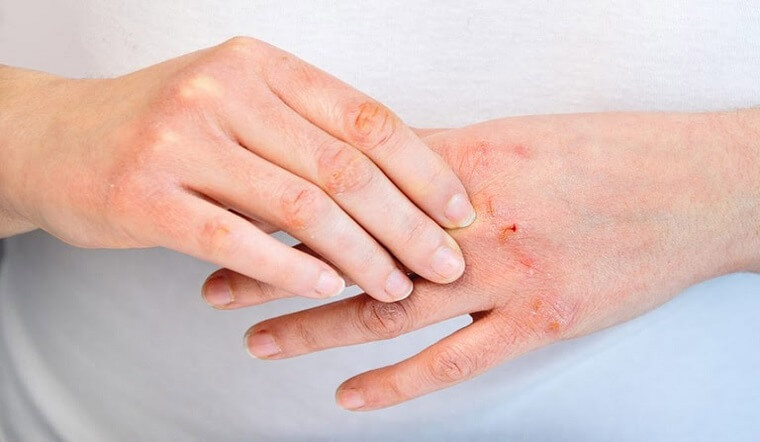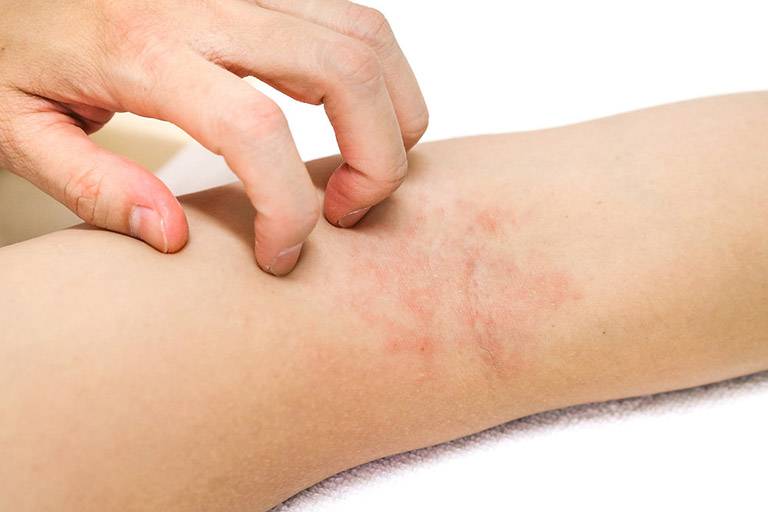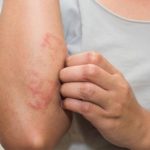SKDS – Eczema, also known as atopic dermatitis, is a chronic allergic skin inflammation that significantly affects the health and aesthetics of patients. At each stage of the lesion, the disease has different symptoms.
– Acute stage: Characterized by circular red patches on the surface of the skin with fluid-filled blisters, exudative inflammation, peeling, and swollen surroundings.
– Chronic stage: Due to excessive scratching, the skin is left with rough, thickened patches, peeling scales, swelling, yellow discharge.

Home Care and Soothing the Skin
Skin care and soothing depend on each stage of the disease. During the acute stage, it is necessary to see a dermatologist for specific guidance. There are some important notes to remember:
– Avoid scratching to prevent worsening inflammation and increasing itchiness.
– Avoid contact with allergenic factors.
– Use mild shower gel and shampoo that are gentle to the skin. Use laundry soap and fabric softener without bleach. Avoid hot or cold showers, only use warm water. Do not spend too much time bathing to prevent skin dehydration. In addition, using some specialized treatment products with ingredients that help reduce skin inflammation and itching.
– Use an air humidifier in the room to prevent dry air that can cause skin inflammation.
– Provide adequate nutrition for the body.
– The use of moisturizers is very important and can be considered as the primary method to prevent acute eczema outbreaks.
Moisturizers have the following effects:
– Reduce inflammation, itching, dryness, and soften the skin.
– Prevent bacterial adhesion, prevent the penetration of irritating agents, and restore the skin’s protective barrier.
– Reduce the time and frequency of corticosteroid use.
– Prevent the recurrence of acute atopic eczema.
Lotions should be used for areas such as the scalp or face to reduce pore blockage. Creams usually contain stabilizers, preservatives to prevent separation of main ingredients and additives that may cause skin irritation or even allergic reactions in some individuals.

You should:
– Choose moisturizers suitable for each person, each location of the lesion, and the condition of dry skin.
– Apply at least 2-3 times/day, and if the skin is still not moisturized enough, you can increase the frequency of use.
– Use immediately after bathing.
– During the acute stage, you can use in combination with corticosteroids as instructed by the doctor.





































